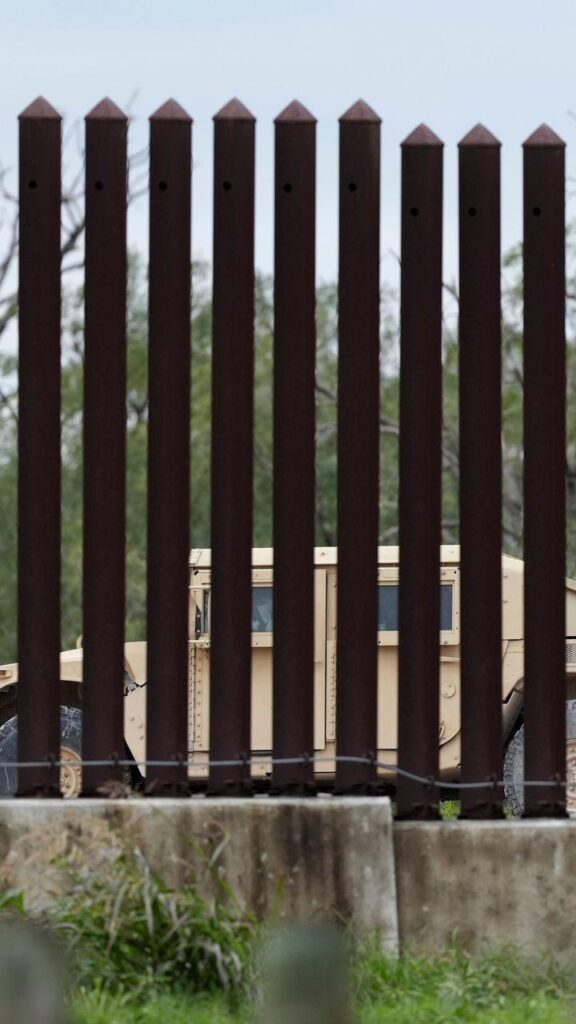in a bold move to bolster energy security and infrastructure in the Great Lakes region,the US Army engineers have made the decision to fast-track permits for a crucial tunnel project. Amidst the changing landscape of policies under the Trump administration, this decision reflects a renewed focus on prioritizing the nation’s energy needs in times of emergency. Let’s dive deeper into the details of this significant progress and its potential impact on the surrounding communities.
Background on the Great Lakes Tunnel project
the US Army Engineers have recently made the decision to fast-track the permits for the Great Lakes Tunnel Project under the Trump Energy Emergency order. This move aims to expedite the process of building a tunnel under the Straits of Mackinac, connecting lake Michigan and Lake Huron. The project, proposed by Enbridge Energy, is designed to replace the current line 5 pipeline and mitigate environmental risks in the region.
Key points regarding the Great Lakes Tunnel Project:
- The tunnel will be approximately 4 miles long and will house a new pipeline to transport oil and gas.
- Enbridge Energy emphasizes that the tunnel will enhance safety measures and protect the Great Lakes from potential leaks.
- Environmental groups have raised concerns about the project’s impact on the local ecosystem and are advocating for alternative solutions.
Implications of Fast-Tracking Tunnel Permits
The US army Engineers have recently decided to expedite the permitting process for the construction of a tunnel under the Great Lakes,following Trump’s Energy Emergency Order. This decision to fast-track the permits has raised several implications that could have far-reaching consequences.
Some of the implications of expediting the tunnel permits include:
- Environmental Concerns: Rushing the permitting process could lead to potential environmental impacts that are not adequately assessed.
- Community Involvement: Fast-tracking permits may limit the opportunity for public input and community engagement in the decision-making process.
Environmental Concerns Raised by the Decision
One of the major to fast-track the Great Lakes tunnel permits under Trump’s energy emergency order is the potential impact on the delicate ecosystem of the Great Lakes region. The construction of a tunnel for the Line 5 pipeline could disrupt the natural habitat of various aquatic species, including endangered ones, leading to a loss of biodiversity in the area. The release of construction materials into the lakes could also contaminate the water, posing a threat to both wildlife and human health.
Furthermore, the increased risk of an oil spill in the great Lakes due to the tunnel construction raises alarms about the potential devastation that could occur in case of an environmental disaster. The Great Lakes provide drinking water for millions of people and support a thriving tourism industry, making the preservation of their pristine condition crucial. Fast-tracking the permits without adequate environmental assessments and considerations could have far-reaching consequences for the health of the Great Lakes and the surrounding communities. Bold action must be taken to ensure the protection of this vital natural resource.
Potential Alternatives to Fast-Tracking Permits
While fast-tracking permits may be the current approach being taken by the US Army Engineers for the great Lakes tunnel project under the Trump Energy Emergency Order, ther are potential alternatives that could be considered to ensure the project moves forward efficiently and effectively.Some of these alternatives include:
- Increased public input: Engaging with local communities and stakeholders to gather feedback and address concerns throughout the permit process.
- Environmental impact assessments: Conducting comprehensive studies to evaluate the potential effects of the tunnel project on the surrounding ecosystem.
- Collaborating with indigenous tribes: Consulting with indigenous tribes to incorporate traditional knowledge and cultural values into the project planning process.
Exploring these alternatives could help to balance the need for expedited permit approvals with the importance of thorough review and consideration of the potential impacts of the Great Lakes tunnel project. By taking a more holistic approach, the US Army Engineers could ensure that the project is both environmentally sustainable and respectful of the concerns of local communities.
Closing Remarks
the decision by the US Army Corps of Engineers to fast-track permits for the Great Lakes tunnel project under the Trump administration’s energy emergency order has sparked debate and raised concerns among environmentalists and stakeholders. As the project moves forward, it will be important for all parties to closely monitor the potential impacts on the surroundings and take measures to ensure its sustainability. The outcome of this project will undoubtedly have lasting effects on the Great Lakes region, making it imperative for all involved to prioritize thoughtful decision-making and environmental stewardship.Let us hope that the ultimate result is one that balances the need for energy infrastructure with the conservation of our natural resources.


